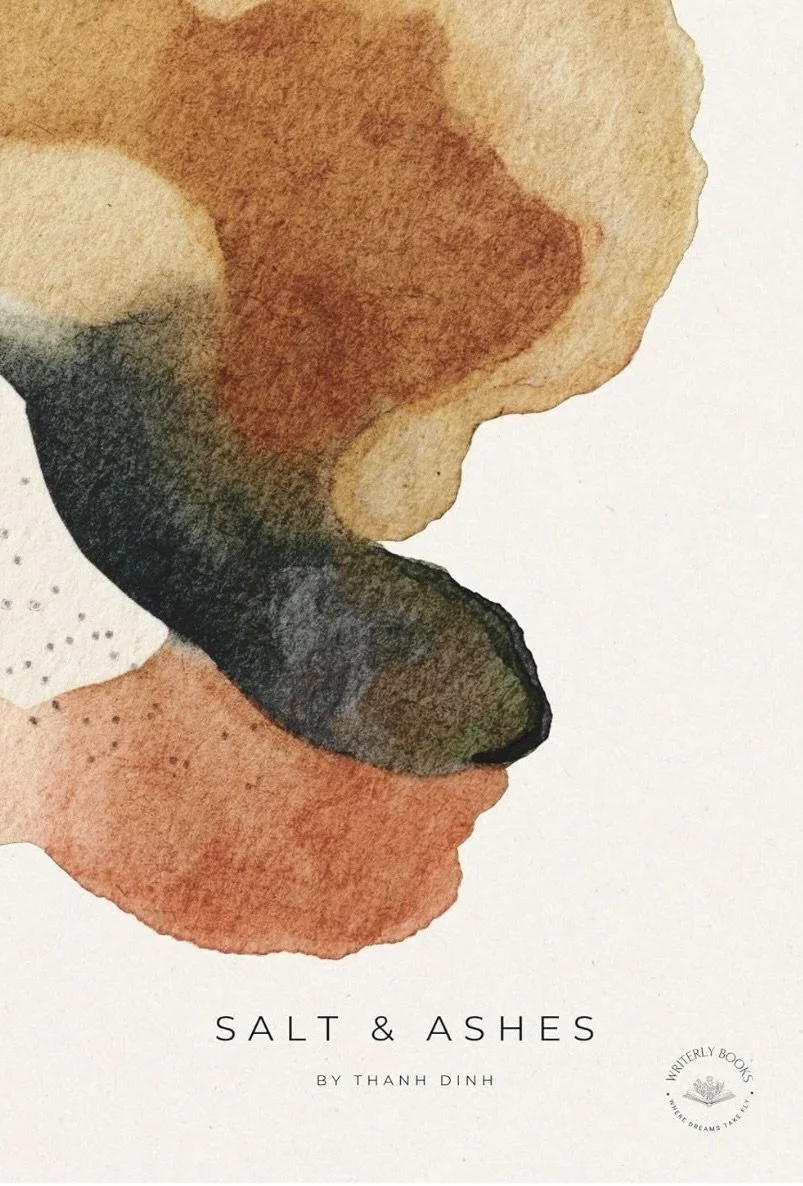Salt & Ashes: Poems From the Abyss
by Thanh Dinh
Choose the Living, But Know What That Really Means
There’s a line in this book that stuck with me from the beginning:
Choose the living. Choose the spring.
It sounds like hope at first. But as you move through the poems, you realize it’s not. It’s not about renewal or growth or rebirth. It’s about survival. Bare survival.
And sometimes that’s all you’re left with.
Thanh Dinh’s Salt & Ashes starts as a kind of conversation with literature: Modiano, Ophelia, Sisyphus, the Tower of Babel. She’s pulling from everywhere. But the further in you get, the more it shifts. What begins as smart and referential turns into something raw.
There’s grief, rage, exhaustion, survival, and not a lot of resolution. God shows up, but mostly to be yelled at. And love? Love is in here, but it’s not clean. Or safe. Or lasting.
What This Book Is Doing
This isn’t a collection about healing. It’s about living through the things that don’t heal.
There are poems about:
Being the daughter of a war you didn’t start but still carry
Atheism that keeps circling God anyway
Relationships that were already ending while they were still happening
Anger, the kind that doesn’t perform, just simmers
There are symbols and references woven throughout, Babel, Sisyphus, Ophelia, but not for style. She’s using them the way people use old stories when nothing new makes sense.
What Stands Out
What I noticed most is how often she lets things stay broken.
No moment where it all comes together. No peace. No bow at the end.
Some poems are theatrical. Some are stripped down.
But it never feels fake. Even the dramatic ones feel like someone trying to hold their voice together before it cracks open.
Standout Poems
“The Louki Within” opens the book with quiet loneliness and ends on that now-familiar line:
Choose the living. Choose the spring.
Only later do you understand what it actually costs to do that.“Keigo” is a love letter that reads more like a slow implosion. It’s brutal and sharp, turning personal pain into something almost mythic.
“Show Some Mercy” ends the book quietly. It’s not triumphant. It’s just someone saying:
I didn’t choose to be this way.
After all, I only have one option: to live.And that’s the core of the whole thing. Choosing life not because it’s beautiful, but because there’s no other option left. That’s where the real grief is.
Reading This Book
Some of the poems require context, literary, philosophical, religious. You may find yourself stopping to look things up.
Other poems hit immediately, fast, sharp, and unforgiving.
The tone shifts, political, personal, poetic, then suddenly gutted. But the emotional current underneath it all doesn’t waver. Even when the speaker becomes the girl, the ghost, the beast, the moon the voice holds. Tired. Aware. Angry. Sometimes cruel. Sometimes begging. But always honest.
What Stayed With Me
Salt & Ashes doesn’t try to comfort you. It doesn’t pretend there’s a neat arc.
What it does instead is name something that a lot of us know but don’t say:
That continuing to live, day after day, even when nothing is transformed is still something.
And maybe that’s the hardest thing to do.
ARC provided by Victory Editing NetGalley Co-op in exchange for an honest review.
Salt & Ashes by Thanh Dinh releases on July 25, 2025.
This post contains affiliate links. If you purchase through these links, I may earn a commission at no additional cost to you.
Preorders available on Amazon or Bookshop.org
First time on Bookshop.org? Click here for a discount code
Looking for your next read?
My Asian Era is where literature meets culture, thoughtful reviews, quiet voices, and stories worth slowing down for.

